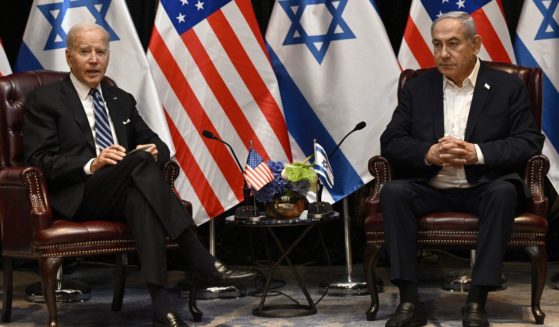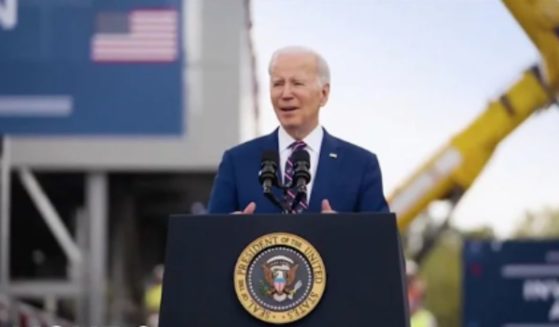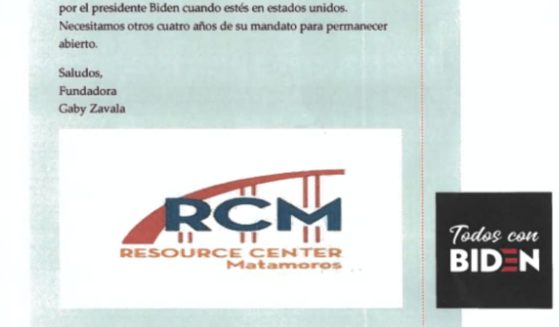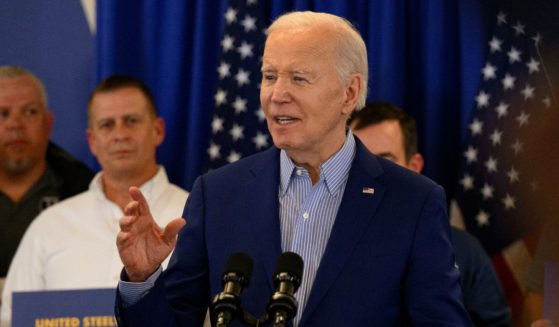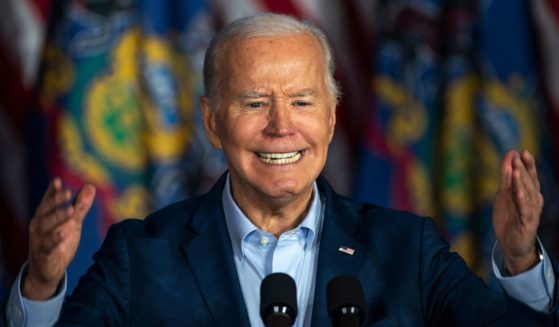Trump's DHS Preps Plan To Force Companies To Look for More US Workers Instead of Immigrant Labor
A rule which forced the United States to issue work permits to asylum-seekers in the United States within 30 days of their request is set to be scrapped by the Department of Homeland Security, setting the stage for a showdown between the Trump administration and pro-immigrant groups.
According to Breitbart, the move is designed to cut down on the number of illegal immigrants seeking asylum for purely economic reasons.
The rule has also been criticized for providing a pool of technically legal blue-collar workers instead of others authorized to work.
Under the 1994 rule, asylum-seekers who have waited 150 days or more for a hearing in asylum court can ask for a work permit.
Generally speaking, this hasn’t been very much of an issue for either the asylum court system or the American workforce. That’s changed in the past few years, however.
“The minor rule is now a huge loophole because the immigration courts are so backlogged by up to 1 million asylum-seekers that new migrants know they can get work permits by simply asking for asylum at the border,” Neil Munro reported in Breitbart on Monday.
“So the 1994 rule allows new migrants to get renewable work permits in just 180 days — 150 days plus 30 days — after they cross the border.”
Of course, this provides yet another incentive for those who usually wouldn’t qualify for asylum under current law to apply for it, something the DHS says it needs time to screen for.
“This change is intended to ensure [United States Citizenship and Immigration Services] has sufficient time to receive, screen, and process applications for an initial grant of employment authorization based on a pending asylum application,” the proposed rule change states.
“This change will also reduce opportunities for fraud and protect the security-related processes undertaken for each EAD application. DHS is also proposing to remove the provision requiring that the application for renewal must be received by USCIS 90 days prior to the expiration of their employment authorization.”
“The proposed rule would benefit USCIS by allowing it to operate under long-term, sustainable case processing times for initial EAD applications for pending asylum applicants, to allow sufficient time to address national security and fraud concerns, and to maintain technological advances in document production and identity verification. Applicants would rely on up-to-date processing times, which provide accurate expectations of adjudication times.”
“The level of fraud sophistication and the threat immigration-related national security concerns posed today are more complex than they were 20 years ago,” the proposed rule change notes.
“Furthermore, changes in intake and document production to reduce fraud and address threats to national security, as well as necessary vetting to address such concerns, are not reflected in the current regulatory timeframe.”
Pro-immigration advocates aren’t happy about this.
“In addition to putting up a roadblock to integration, the move would shrink a pool of workers in an already tight labor market, reduce tax revenue, and potentially encourage asylum seekers to work without authorization,” Ali Noorani, executive director of the National Immigration Forum, wrote in a Monday Op-Ed for Fox News.
“And, later this week, the administration is due to determine the Fiscal Year 2020 refugee cap. Reports are that the cap could fall to 15,000 refugees granted admission per year. Numbers like this would decimate cities and towns throughout the Midwest that have grown increasingly dependent on refugee contributions to grow labor forces and tax bases.”
While this cap would be low in a historical sense, note the arguments here.
Yes, Noorani’s piece is elsewhere adorned with weighty language about America living up to its founding ideals by letting in whomsoever desires entry, but here we get closer to the reasons why employers don’t want this rule.
It “would shrink a pool of workers in an already tight labor market,” Noorani says, which is to say it would put downward pressure on wages for blue-collar workers, particularly those on the lower rungs of the employment ladder.
The rules would “decimate cities and towns throughout the Midwest that have grown increasingly dependent on refugee contributions to grow labor forces,” he argues. Again, what he’s talking about here is putting downward pressure on wages.
The NIF also used similar language in a news release about the proposed changes.
“The rule could result in millions of dollars of lost wages, with a corresponding significant loss in federal and state tax revenue. In a very tight labor market, it would further shrink the pool of available workers. Simply put, this will have a sizeable negative impact on asylum seekers and Americans alike,” Dan Kosten, an assistant director with the group, is quoted as saying.
As Munro notes dryly: “The NIF’s Corporate Roundtable includes Walmart, dairy firm Ben & Jerry’s Homemade Inc., strawberry grower Driscoll’s, Marriott International, Starbucks Corporation, Target Corporation, poultry processor Tyson Foods Inc., as well as Uber Technologies Inc. and Lyft Inc. hire drivers to deliver food.”
Now, take a look at this paragraph from Noorani’s Fox News piece: “Putting families in danger — ones fleeing violence, persecution and destitution — before they come to America or after they’ve arrived hurts our standing on the world stage. It’s bad policy. It’s morally bankrupt. It runs counter to the country we should continue to be. It also runs counter to United Nations tenets of asylum — that countries should not turn away ‘a refugee in any manner whatsoever to the frontiers of territories where his life or freedom would be threatened on account of his race, religion, nationality, membership of a particular social group or political opinion.’”
Which do you think this has more to do with? Does this rule have more to do with punishing “families in danger” who are “fleeing violence, persecution and destitution” and making it harder to get a work permit?
Or does it have more to do with the fact that these work permits allow the lowest rungs of the employment ladder to be filled by asylum-seekers so that the NIF’s patrons — among others — don’t have to pay higher wages to workers who could already legally work here?
Asylum is supposed to be for individuals fleeing serious persecution in their homelands.
It isn’t a way to better one’s economic life in life; that’s supposed to be done through regular immigration channels.
And it isn’t a way to obtain a de facto work visa; that’s again supposed to be done through the proper channels.
The reason the asylum courts are choked with applicants at the moment is due to the fact we have people coming here due to perverse incentives.
We’ll see whether this rule change, if it’s implemented, is able to eliminate some of them.
However, U.S. companies have been put on notice: It’s time to find other sources of legal workers.
Truth and Accuracy
We are committed to truth and accuracy in all of our journalism. Read our editorial standards.



